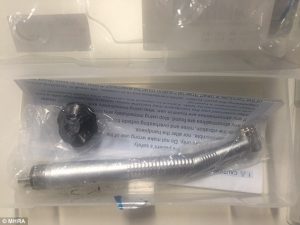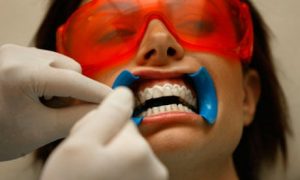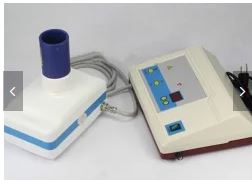Fake instruments: are we sleepwalking into a scandal?
At the recent BDIA Showcase exhibition, I took the time to visit the MHRA (Medicines and Healthcare products Regulatory Authority), and I was frankly shocked. Not by their stand, nor the work they do in stamping out fake instruments. But by the sheer number of items they had seized at that very exhibition: 15,816 individual items from two stands, Retail Value £19,160.
It would appear that the Dental Industry is rife with counterfeit and uncertified instruments and materials. They can be bought quite easily on the internet, and even at professional conferences and trade shows.

Uncertified instruments pose a genuine safety threat to patients and staff alike.
What are we talking about?
There are several counterfeit issues in dentistry. The most serious can have potentially life-threatening consequences. Problems with fake drugs are the most obvious.
It’s very tempting to buy drugs from cheaper suppliers, and the internet makes it possible to find suppliers all over the world. However, if you buy from an uncertified supplier, do you really know what you’re getting? Do they contain the stated dose of the active ingredient? Are they made to the same standards as those from mainstream suppliers? Do they infringe on a patent or steal some other form of intellectual property?
Should you suffer an incident that involves fake drugs, how do you suppose a regulator might respond to you?
Exactly the same issue applies to cleaning and decontamination materials. Legitimate manufacturers and suppliers invest heavily in quality control to ensure their products perform to specification. But without that certification, do you know if those materials work? Can you be sure that they aren’t corrosive to your expensive equipment and instruments? Will they harm your patients, your nurse or even you?
But what prompted me to write this article was what is happening with fake instruments. I was shown a number of examples. Finger spreaders that were cheaply made with a plastic handle that could be pulled from the shaft. Curing lights with a power supply that posed a fire hazard. Ortho file systems that carried the logos, packaging and instruction leaflets of a quality brand, but which were clearly fake. And handpieces that were badly engineered and likely to fail unpredictably.
And worst of all? Fraud carried out by practices themselves by using out of date materials or previously opened batches that had not been resealed or stored correctly. Or deliberately buying fake instruments and unregulated drugs and materials to save money.
Dentists have a duty of care, and that extends to all members of staff and includes using approved and properly managed materials and equipment.
Why does it matter?
This is not the Wild-West. We have many regulations that govern dentistry, and they are there for a reason. Quite apart from failing to meet GDC and CQC standards when you use fake instruments and materials you are likely to be breaking the law and could face criminal charges (with all the consequences that follow).

Illegal whitening products can still be found on internet marketplaces, despite agreements by eBay and Amazon to ban them.
Pretty much every device sold in the UK should have a CE mark. CE marking is a certification mark that indicates conformity with health, safety, and environmental protection standards for products sold within the European Economic Area. Without that mark, you shouldn’t be buying or using that device. This is particularly important in medicine and dentistry.
Should you have an incident involving a patient, using non-CE certified instruments could invalidate insurance policies, and would almost certainly provide grounds for sanctions from the CQC and the GDC. If you are using counterfeit instruments then there is also the possibility of a civil action by the owners of the trademark. And, of course, the MHRA could seize your dodgy instruments meaning you have a sudden and unexpected bill for legitimate replacements.
What are the regulators doing?
There are three regulators involved in this. I sent questions to the MHRA, who have been very helpful (see the question responses below). The CQC responded by pointing me to their website. The GDC failed to respond. You can draw your own conclusion and do your own risk assessment based on that information.
My information is that the CQC and GDC carry out a paper checking exercise during inspections. So long as you can show you are keeping records they are fine. They rarely carry out physical checks on the legitimacy of instruments or the storage and use of part batches. Nor do they frequently check the legitimacy of drugs.
However, all that could (and probably should) change overnight.
When will UDI come into effect?
The Unique Device Identification (UDI) is a system used to mark and identify medical devices within the healthcare supply chain.
The IMDRF (International Medical Device Regulator Forum), the United States Food and Drug Administration (FDA) and the European Commission are aiming for a globally harmonised and consistent approach to increase patient safety and help optimise patient care by proposing a harmonised legislation for Unique Device Identification (UDI), using global standards. And even if the UK leaves the EU, UDI will be implemented during the spring of 2020.
And when it is, dental practices will need to keep records of every UDI marked device. Ambitions for tracking and tracing are that patient treatment records will include details of what instruments and equipment were used during treatment.
And that means that the CQC and GDC box-ticking exercise will become much more complicated. And they will have a very simple method to verify the legitimacy of instruments and equipment.
You have been warned.
How can I ensure I’m not using fake instruments?
The MHRA website provides some very helpful information about ensuring the legitimacy of instruments, equipment and materials.
On top of that, you need to start thinking about improving your stock and instrument management. This has led to a whole new class of software appearing at dentistry shows, such as the Insightdental from Smart Dental Solutions.
But you also need to ensure that your practice management and administration staff understand the regulations around purchase and storage of drugs, materials and instruments. They have to avoid ordering in bulk to gain discounts if that material isn’t going to be used and stored within specification. They have to ensure they don’t fall foul of counterfeiters. And they have to buy from legitimate suppliers with a trackable supply chain back to the manufacturers of the basic ingredients and components.
The rules are there to protect patients, staff and practice owners. Step outside these rules and someone or something is at risk. And the risk that you will be caught and sanctioned, even if your infringement was accidental, will increase significantly next year.

One of the most dangerous items intended for dentistry and seized by the MHRA is a Portable Dental X-ray Machine BLX-5 – neither certified or even designed for use in the EU or UK.
What the MHRA says:
- What do you consider the most dangerous items you found?
- at the BDIA Showcase?
- Dental Handpieces with NO Notified Body EC Certification
- ever in dentistry?
- Portable Dental X-ray Machine BLX-5
- in any other field?
- Uncertified Medical laser machine
- at the BDIA Showcase?
- Will the new marking regulations make your life easier or just make it easier to secure convictions?
- The ethos at MHRA is to secure compliance with safety regulations and the new regulations will make that easier to achieve.
- Who should a practice manager contact if they think they have purchased counterfeit instruments or materials?
- They may complete the online form at https://yellowcard.mhra.gov.uk/counterfeit-products/ or they may anonymously send details of the suspect item including an explanation of why it is suspected of being counterfeit, picture of the label/packaging/sellers email and or address to devices.compliance@mhra.gov.uk we also have a 24-hour hotline for counterfeits at 020 3080 6701.
- What penalties could a practice manager or owners face if they are found to have knowingly used counterfeit instruments or materials?
- The MHRA does take action regarding the putting into service of illegal medical devices by professionals/dentists;
- where a dentist knowingly uses counterfeit instruments on a patient there are trading standards offences under the protection from unfair trading regulations
- a dental lab was prosecuted under these regulations for making dentures he was not licensed to
- additionally, MHRA provides witness testimony where a dental professional in charge of each dental practice can also be held responsible
- Ultimately any monies made using illegal devices may be seized under the proceeds of crime.
- The MHRA does take action regarding the putting into service of illegal medical devices by professionals/dentists;
- Do you think this is organised crime run by a few ‘bad boys’ or lots of small players, some of whom might not realise exactly how dangerous this is?
- Lots of the fake illegal dental equipment is supplied from abroad but a small amount is shipped from the UK
- I do believe that it is run by a large operation abroad that counterfeits a large variety of products from different markets, not just the medical market.
- What are the penalties for supplying counterfeit instruments and materials?
- Under the Trademarks Act 1994 section 92, the penalty can be up to 10 years in prison.
- What checks should purchasers perform to ensure they have approved instruments and materials?
- Firstly I would recommend that they only buy from established distributors in the UK, as there will be little comeback against companies registered outside the EU.
- There are several dental trade associations including the BDIA whose members are vetted.
- To ascertain what classification and Certification products require is a specialist role
.
What Smart Dental Solutions say:
- What ‘inspired’ you to create a stock control system for dental practices?
- Mainly my own experience in running my practices. I got fed up of problems around stock control that I’m sure all practice owners have experienced. Things like running out of stock or ordering stock only to find out you are already holding that stock in the back of a cupboard somewhere and it’s now going out of date. I looked around for some solutions but found there was nothing out there that worked for me, so I made my own.
- What features does your system have to;
- Record batch/lot numbers
- There is the ability to record batch numbers/lot numbers under the description aspect of each stock item.
- Instrument/material type approval
- Not a feature of my system
- Material compliance (age, storage, etc)
- Our system allows you to enter expiry dates for each stock item. I mostly use it for expiry dates for emergency drugs.
- Record batch/lot numbers
- How and why does your system link instruments and materials to patients?
- Our system does not link instruments or materials to patients. It does, however, track stock from a stock room to individual surgeries.
- Do you see stock control becoming a bigger issue for the CQC, and therefore practices?
- Looking at the wider picture, I can see stock control of drugs and medication being an area that the CQC will start to look at. There is already talk around tracking instruments and materials to specific patients in secondary care and I can see this eventually being moved over into primary care. I do feel this is an area primary care will need to start to look at in the future.
- Have you come across many instances in your career of counterfeit instruments or non-compliant materials?
- Not generally in day to day practising life but I have seen an increase in patients ordering materials like bleaching gels from the internet and reporting adverse effects from this. Given the way the internet has enabled this, I believe this will be an increasing issue in the future.
- Do you think practice managers and owners need to pay more attention to stock control and management?
- Absolutely. For dental surgeries to run efficiently good stock control is essential. Most suppliers can deliver within 24-hours, thus holding unnecessary stock can mean surgery cash is tied up in stock rather than being used for investment.
.
More information about Insight Dental from Smart Dental Solutions can be found at: https://smartdentalsolutions.co.uk/
You can find the MHRA at: https://www.gov.uk/government/organisations/medicines-and-healthcare-products-regulatory-agency
To contact Precision PR, please email chris@precisionpr.co.uk or call 07432 189149




